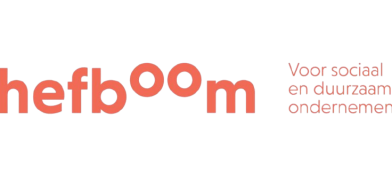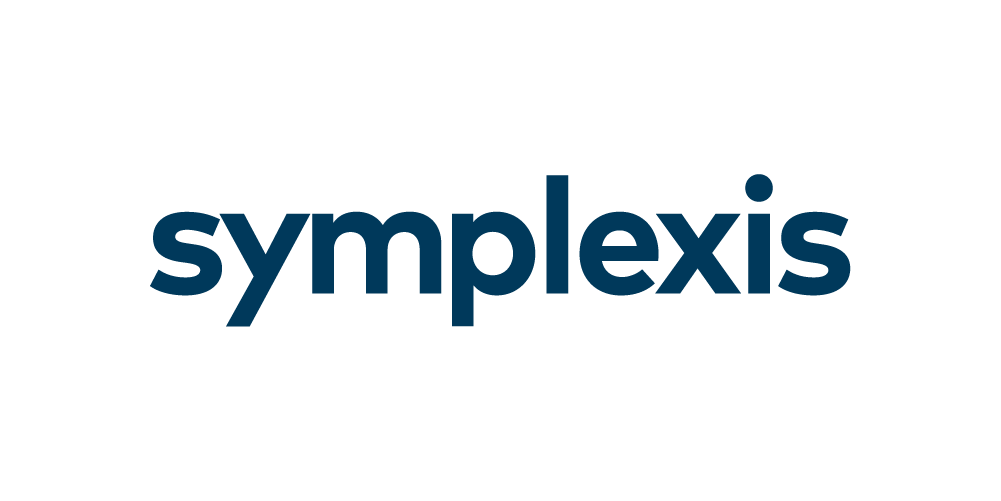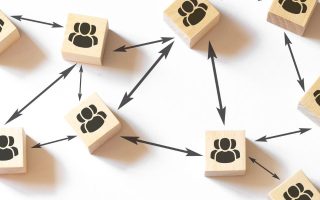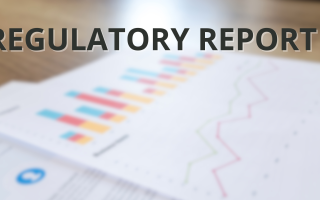THE VOICE
MICROFINANCE
We promote microfinance as a tool to overcome social and financial exclusion.
EMN
Conference 2026
Join us in Barcelona, Spain, from 14-16 October 2026, for insightful discussions and networking.
Resilience
Financial Health
Supporting vulnerable entrepreneurs through economic challenges.
European
DAY 2025
Highlighting the impact of microfinance on social and economic inclusion since 2014.
Peer-to-Peer
visits
Exclusive for EMN members to explore best practices and deepen expertise on key themes
Latest opportunities
MICROFINANCE
Discover open calls for proposals, applications, and expressions of interest in the microfinance sector
Shaping the future of microfinance
Our work
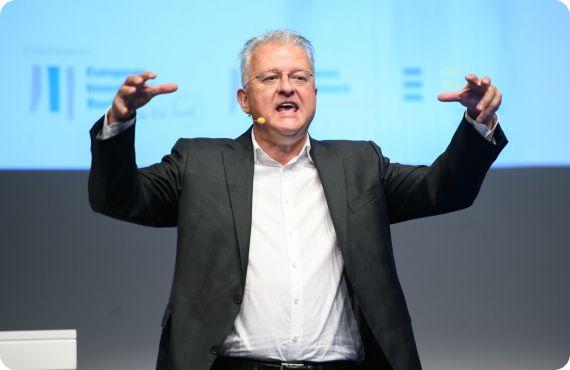
Advocacy
The development of microfinance in Europe has encountered many legal and political obstacles. It is therefore important that the European Microfinance Network be strongly involved in advocacy on a wide range of issues related to microfinance, micro-enterprises, social and financial exclusion, self-employment and employment creation.
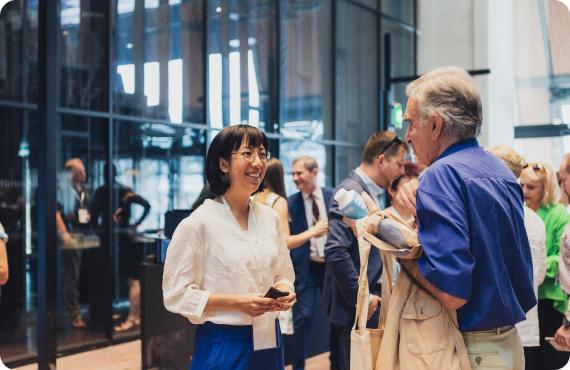
Knowledge Exchange
The peer-to-peer exchange visits, exclusively intended for EMN members, provide each EMN member with the opportunity to visit another member on a specific theme, in order to deepen the understanding of their work, to encourage exchange of good practices and to develop expertise. These bilateral exchanges, tailor-made to members’ needs and expectations, also facilitate cooperation and collaboration between EMN members.

Research
The development of microfinance in Europe has encountered many legal and political obstacles. It is therefore important that the European Microfinance Network be strongly involved in advocacy on a wide range of issues related to microfinance, micro-enterprises, social and financial exclusion, self-employment and employment creation.
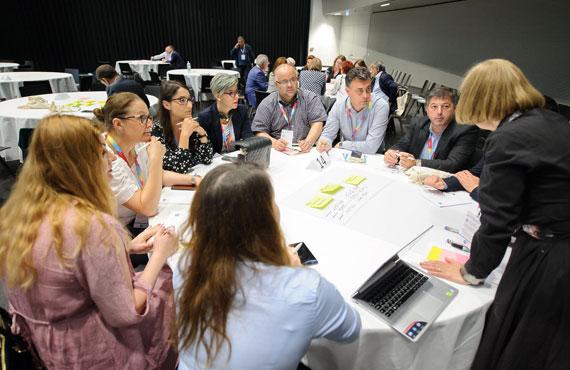
Working Groups
EMN organises Working Groups to strengthen the involvement of its members in the Network. The activities carried out by the different Working Groups are very diverse: organisation of workshops, elaboration of research papers, publications, creation of new tools for microfinance management, etc.
Discover who we are
About us
European Microfinance Network is an NGO that connects microfinance institutions, social finance organizations, and other stakeholders throughout Europe (EU and candidate countries). Since 2003, with the help of members from EU countries and candidate countries, EMN has played an important role in cultivating collaboration, encouraging innovation, and knowledge sharing across the microfinance ecosystem. We partner with EU institutions like the EIF and EIB, as well as corporations, to implement projects across Europe. EMN, together with other partners, also developed the Code of Good Conduct to ensure high standards in microfinance operations and protect clients’ interests.
Stay updated with our latest happenings
Upcoming Events
Identify, protect and monetise IP assets
Share this event
The future of microfinance is stronger together
Our network
We are proud to have 95 members from 23 countries, including EU and candidate countries. Among these, 27 organizations follow the Code of Good Conduct, showcasing their dedication to high standards in microfinance. Inside EMN there are 11 national networks that are focused on advocating for microfinance as a tool for overcoming social and financial exclusion. Inside of EMN members are collaborating across regions in project consortia and also establish partnerships between themselves for developing dedicated financial products.
EMN amplifies its support for its members through partnerships with companies offering tailored value, enabling the creation of customized events and services. Members also receive assistance from EMN in applying for SIFTA technical support, organizing study visits, and obtaining the COGC. Additionally, EMN offers its support and knowledge to members in conducting research on specific needs, like impact assessments, ensuring they are well-equipped to thrive in the evolving microfinance landscape.
Explore our latest news
Latest news
Created in 2020, the L’Oréal Fund for Women is an endowment fund dedicated to supporting grassroots organizations and associations that assist highly vulnerable women and girls and combat gender-based and sexual violence. The Fund supports projects that provide access to education, social and professional integration, and the protection of women’s rights, contributing to the resilience of women and girls in highly precarious situations.
While the 2026 call for applications has not yet opened, EMN members can prepare in advance and review the selection criteria. Having an account is required to apply:
New users: must review the selection criteria before creating an account.
Existing users: must confirm that they have read the selection criteria.
This is a unique opportunity for members to present projects that make a tangible difference for women and girls, and to gain visibility in the international social and microfinance community.
Check their website for more information and to review the selection criteria
EMN is excited to welcome Globus Bank as a new member of our network!
Globus Bank is a private commercial bank in Ukraine that focuses on supporting national recovery by providing sustainable and accessible financial solutions. Its mission is to promote economic stability and address the needs of micro, small, and medium-sized enterprises through tailored lending programs and sustainable finance instruments. The bank aims to accelerate Ukraine’s transition to energy independence by financing energy-efficient solutions for condominium associations and ESCO companies. Additionally, Globus Bank actively advocates for the economic interests of combat veterans by offering specialized preferential financial instruments.
All initiatives implemented by the bank are aimed at creating positive impact and are based on core values such as resilience, environmental responsibility, and social justice. By focusing on high-impact sectors, the bank ensures the sustainability of results and implements a results-oriented strategy. Globus Bank is committed to high social ideals and develops banking products that actively contribute to poverty reduction, peacebuilding, and the creation of a prosperous future for Ukraine.
Check the member profile.
Entrepreneurial activity in low-income communities faces numerous challenges, but it is not impossible for it to thrive. The Financial Health and Resilience project is committed to identifying strategies that support entrepreneurs and enhance their financial resilience. Since many entrepreneurs depend on their businesses for their livelihood, providing support not only contributes to their business success but also bolsters their personal and family resilience.
In the project, three hundred entrepreneurs received mentoring and coaching tailored to their individual needs and availability. In 2025, the partners focused on the following objectives:
- Establishing 150 mentoring relationships in each country
- Providing support based on each entrepreneur’s specific needs
- Encouraging the development of new, positive habits, such as collaboration, flexibility, and finding a balance between work and personal life.
In 2026, the partners will finalise the development of the support methodology aimed at strengthening entrepreneurs’ financial health and will pilot new support methods, including collaborative entrepreneurship, to alleviate the pressures faced by entrepreneurs. Results from the project will be presented at the 2026 Annual Conference in Barcelona.
Funder: JPMorgan Chase Foundation
Partners:
- Spain: Autoocupacio Foundation, Tomillo Foundation, Nantik Lum Foundation, Incyde
- France: Adie Association, Cresus Foundation, LiveMentor
In Spain and Greece, our local partners, Autoocupació and ANKA, are working with 60 young people who are not engaged in education, employment, or training (NEETs) to help them find a path toward employment. The reasons for economic exclusion among these individuals vary, including issues related to education, housing, migration, and family obligations, such as caring for dependent family members. Despite their differences, these factors all lead to significant challenges for young people trying to re-enter the labor market.
The roles of our partners and the EMN are to test and develop a methodology aimed at assisting long-term market-excluded youth in discovering their own routes to economic independence. Drawing from Autoocupacio’s successful mentoring experience, the partners have crafted a methodology that focuses on building trust-based, non-judgmental relationships in which the motivations and aspirations of young people take center stage.
In 2026, the project aims to support an additional 120 young people, and the relationships formed during this initiative will help refine the methodology further. The findings from the project will be presented at the Annual Conference in Barcelona in 2026.
Funder: European Social Fund (ESF+)
Partners:
- Autoocupacio Foundation (Spain)
- ANKA (Greece)
Explore our latest publications, reports, and insightful studies
Latest publications
This 13th edition of the Survey on Microfinance in Europe, produced by the European Microfinance Network (EMN) and the Microfinance Centre (MFC), draws on data from 198 microcredit providers operating across 30 European countries in 2024.
While the primary focus is on EU-27 countries, the survey also includes data from candidate and potential candidate countries, offering a comprehensive picture of the sector’s European footprint. This edition places a particular emphasis on social outreach to vulnerable groups and microbusinesses.
Microfinance overview surveys
In this publication, the European Microfinance Network describes the latest legislative developments in Greece regarding microfinance.
Regulatory reports
Regulatory reports
Join our community and contribute to financial inclusion
Join the community
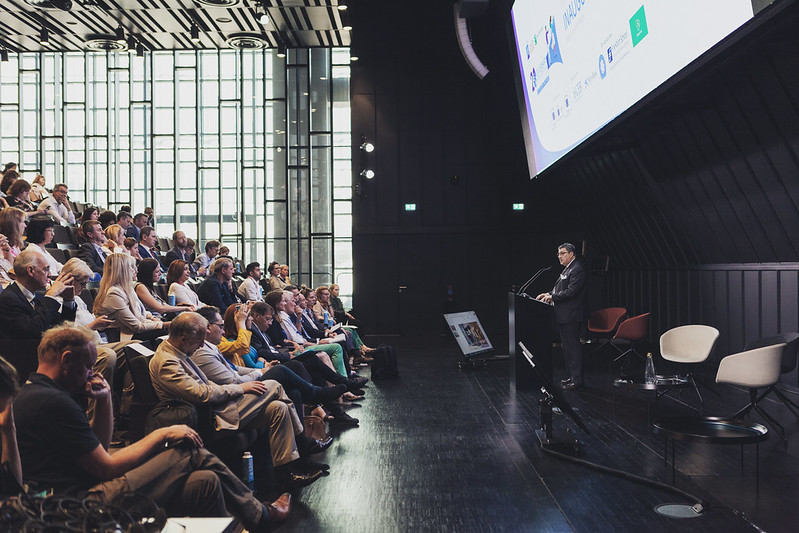
Conference discount
Access to personalized solutions
EU policy involvement
Advocacy involvement
Early access to EU consortiums
First-hand policy news
Expand professional connections
Access to microfinance investors
Brand leverage






